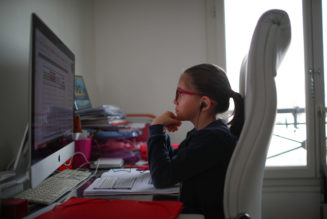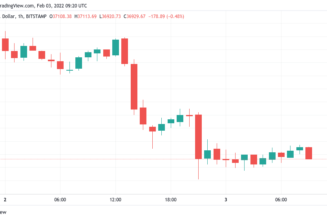/* custom css */
.tdi_4_c20.td-a-rec-img{ text-align: left; }.tdi_4_c20.td-a-rec-img img{ margin: 0 auto 0 0; }
Social media mega-corp Facebook said on Wednesday that it had removed a network of fake accounts in Ethiopia targeting domestic users ahead of general elections next week in the country. The company said that the network was found to be linked with Ethiopia’s Information Network Security Agency (INSA).
Posting mostly in Amharic about news and current events, including information about Prime Minister Abiy Ahmed and his Prosperity Party, the network of fake accounts was also posting critical commentary about opposition politicians and groups including the Oromo Liberation Front, Ethiopian Democratic Party and the Tigray People’s Liberation Front, amongst others.
Reuters reports that the head of Ethiopia’s INSA did not immediately respond to requests to comment on the network of the fake account. The agency, established years before Ahmed came to power in the country, is responsible for monitoring telecommunications and the internet.
/* custom css */
.tdi_3_660.td-a-rec-img{ text-align: left; }.tdi_3_660.td-a-rec-img img{ margin: 0 auto 0 0; }
“INSA is under the ministry of peace and an independent institution – you can address your question there,” Billene Seyoum, the prime minister’s spokeswoman, told Reuters when asked about the Facebook removals
Coordinated Critical Attack
Facebook said that the network of accounts, groups and pages on its standard service and also on Instagram violated rules against “coordinated inauthentic behaviour.”
According to Facebook the network had accelerated its posting in 2020 and continued to ramp up spreading critical information from fake accounts into 2021, ahead of elections in the country.
The fake network had also made comments against US sanctions in Ethiopia.
Ethiopia Prepares to Vote
The 21 June elections will be Ahmed’s first time facing voters at the ballot box.
Just over a fifth of parliamentary constituencies in Africa’s second-most populous country is not voting due to logistical problems, low-level violence or the war in the northern region of Tigray.
Facebook said that the fake accounts network’s activities on its platforms weren’t directly focused on the Tigray region or the ongoing conflicts therein.
Facebook said about 1.1 million accounts followed one or more of the network’s pages and about 766,000 accounts joined one or more of the groups.
The social media giant also said the network had spent about $6200 in ads on the platforms, paid for in U.S. dollars.
By Luis Monzon
Follow Luis Monzon on Twitter
Follow IT News Africa on Twitter
/* custom css */
.tdi_5_42d.td-a-rec-img{ text-align: left; }.tdi_5_42d.td-a-rec-img img{ margin: 0 auto 0 0; }










